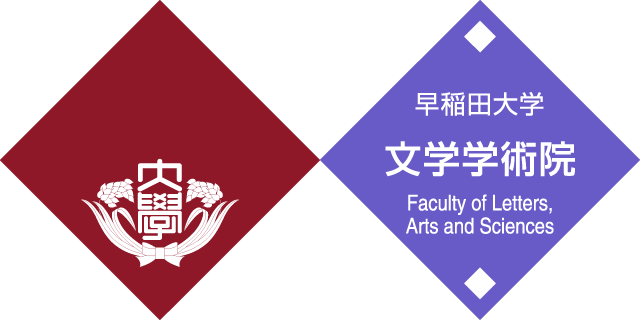- News
- Event Report: Lecture by Dr. Christina Yi, “Critical Approaches to “Japanese-Language” Literature: On the Writings of Kim Sŏkpŏm”
Event Report: Lecture by Dr. Christina Yi, “Critical Approaches to “Japanese-Language” Literature: On the Writings of Kim Sŏkpŏm”

- Posted
- Wed, 06 Sep 2023
On June 28, 2023, at 3:05 p.m., Dr. Christina Yi, visiting associate professor at Waseda University, gave a lecture entitled “Critical Approaches to “Japanese-Language” Literature: On the Writings of Kim Sŏkpŏm” at the Waseda International House of Literature (Murakami Haruki Library). Dr. Christina Yi is a researcher who received her PhD from Columbia University and teaches modern Japanese literature at the University of British Columbia, Canada. Dr. Yi is the author of Colonizing Language: Cultural Production and Language Politics in Modern Japan and Korea (2018) and the English translator of Death of a Crow, a collection of short stories by Kim Sŏkpŏm (1925-), published by Seoul Selection in 2022. This lecture aimed to reconsider the concept of “Japanese-language literature” proposed by Kim Sŏkpŏm, a Zainichi Korean writer, with a focus on the works included in Death of a Crow. An audience of over 37 people gathered at the venue.
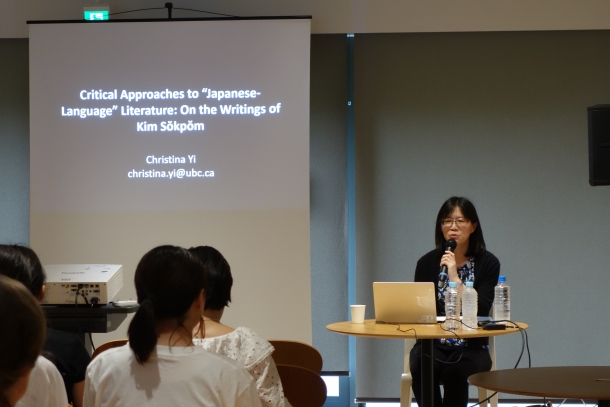
Dr. Christina Yi began her lecture by introducing the words of Spanish scholar Antonio de Nebrija (1444-1522) in 1492: “language is always the companion of empire.” At the earliest stage of the imperialist era, Nebrija’s words indicated how language could function as an instrument of colonial rule. This was also true in the case of Japanese colonial rule. From this perspective, Dr. Yi explained how the concept of national language, or kokugo, changed during Japan’s transition from an empire to a nation-state. Before the Asia-Pacific War, Japanese (as kokugo) as the universal language of the Japanese empire was used as a tool to create the illusion of language-mediated multi-ethnic harmony, and at the same time, it functioned as a tool of differentiation to create hierarchical power relations between the suzerain state Japan and its colonies. After the Asia-Pacific War, however, the concept of national language in Japan no longer meant the universal language of the empire but the particular language of the nation-state Japan. Understanding how Korean and Japanese writers responded to these changes in the linguistic situation of the Japanese language through literary texts is a major theme explored by Dr Yi in her book Colonizing Language.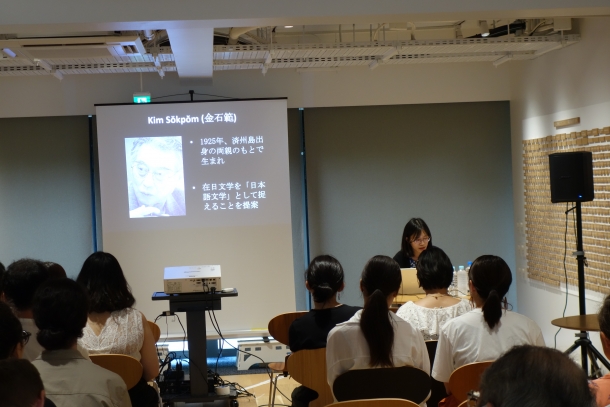
While outlining the above, Dr. Yi also mentioned how the status of Koreans living in Japan changed from Japanese imperial subjects to Zainichi Koreans after the war. For Zainichi Korean writers, the Japanese language has always been incompatible with the postwar view of the language as the national language of the nation-state Japan. It is in this very context that Kim Sŏkpŏm proposed the concept of Zainichi Korean literature as “Japanese-language literature”. As Dr. Yi pointed out, Kim Sŏkpŏm, born in Osaka in 1925, could not avoid being aware that his first language, Japanese, was also a legacy of Japanese imperialism. However, Kim believed that it was possible to develop critical thinking about Japanese colonialism and its postwar legacy through the creation of Japanese language works: “It is true that as long as Koreans think in Japanese, their consciousness will be defined by that language. But it may be possible to cast off the mechanism of Japanese through the very universality claimed by the words of the Japanese language itself. In other words, the conditions for freedom lie within that very language that is meant to restrict freedom – Japanese” (Is it Possible to Establish Zainichi Korean Literature? 1972). Kim’s words capture in a nutshell this Zainichi literature theory as Japanese-language literature.
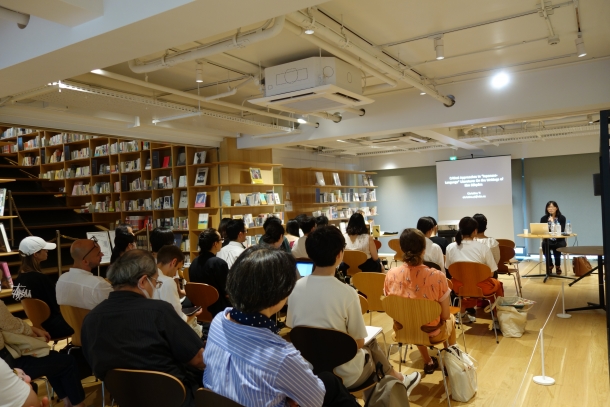 Dr. Yi discussed how Kim’s theory of Japanese-language literature as described above is put into practice through the example of the works included in Death of a Crow. This collection of short stories takes up the Jeju April 3 Incident as a major subject. The Jeju April 3 Incident took place in 1948, when southern Korea was still under the occupation of GHQ (General Headquarters of the Supreme Commander of the Allied Powers) following its colonial liberation after the Asia-Pacific War. South Korean authorities, suspecting the involvement of the South Korean Workers’ Party, a communist party, in a series of uprisings that occurred on Jeju Island, mobilized government troops, police, and anticommunist groups supporting the Syngman Rhee regime to carry out indiscriminate and massive repression against the islanders until around 1954. The Jeju massacre was the catalyst for many Jeju islanders to flee the violence and emigrate to Japan. Kim Sŏkpŏm, who lived on Jeju Island during the war and emigrated back to Japan around 1946, continued to write novels about the Jeju massacre throughout his life. For Kim, it was the Japanese language that made it possible to represent the incident, which for a long time had been a taboo subject in South Korea until the late 1980s. Dr. Yi took up several quotations from “Gwandeokjeong” and “Bak-seobang, Jailer” included in Death of a Crow to demonstrate how Kim highlights the inseparable relationship between the Japanese language and Japanese imperialism, as well as how he de-territorializes and dissimilates the Japanese language itself. Dr. Yi also noted that Kim’s own critical stance toward the Korean government under the auspices of the U.S., which in turn perpetuated colonial conditions, can be read in his works.
Dr. Yi discussed how Kim’s theory of Japanese-language literature as described above is put into practice through the example of the works included in Death of a Crow. This collection of short stories takes up the Jeju April 3 Incident as a major subject. The Jeju April 3 Incident took place in 1948, when southern Korea was still under the occupation of GHQ (General Headquarters of the Supreme Commander of the Allied Powers) following its colonial liberation after the Asia-Pacific War. South Korean authorities, suspecting the involvement of the South Korean Workers’ Party, a communist party, in a series of uprisings that occurred on Jeju Island, mobilized government troops, police, and anticommunist groups supporting the Syngman Rhee regime to carry out indiscriminate and massive repression against the islanders until around 1954. The Jeju massacre was the catalyst for many Jeju islanders to flee the violence and emigrate to Japan. Kim Sŏkpŏm, who lived on Jeju Island during the war and emigrated back to Japan around 1946, continued to write novels about the Jeju massacre throughout his life. For Kim, it was the Japanese language that made it possible to represent the incident, which for a long time had been a taboo subject in South Korea until the late 1980s. Dr. Yi took up several quotations from “Gwandeokjeong” and “Bak-seobang, Jailer” included in Death of a Crow to demonstrate how Kim highlights the inseparable relationship between the Japanese language and Japanese imperialism, as well as how he de-territorializes and dissimilates the Japanese language itself. Dr. Yi also noted that Kim’s own critical stance toward the Korean government under the auspices of the U.S., which in turn perpetuated colonial conditions, can be read in his works.
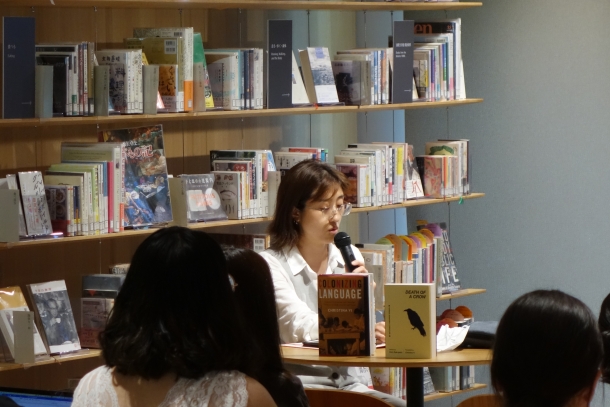 Finally, Dr. Yi outlined the background of how the category of Japanese-language literature has come to attract attention in the field of literary studies as an alternative concept to the traditional concept of Japanese literature, and drew attention to the fact that the very concept of Japanese-language literature is always in danger of reproducing the asymmetrical power relations between center and periphery that it seeks to dismantle. From this perspective, Dr. Yi pointed out that it is still valid to reconsider the concept of “Japanese-language literature” proposed by Kim Sŏkpŏm in the 1970s.
Finally, Dr. Yi outlined the background of how the category of Japanese-language literature has come to attract attention in the field of literary studies as an alternative concept to the traditional concept of Japanese literature, and drew attention to the fact that the very concept of Japanese-language literature is always in danger of reproducing the asymmetrical power relations between center and periphery that it seeks to dismantle. From this perspective, Dr. Yi pointed out that it is still valid to reconsider the concept of “Japanese-language literature” proposed by Kim Sŏkpŏm in the 1970s.
The lecture was followed by a Q&A session with the participants. The questions included how Dr. Yi came to translate Death of a Crow and the difficulties in teaching Japanese literature outside of Japan, such as how to take up and teach texts marginalized until now.
This lecture was organized by the Waseda Institute for Advanced Study, and the Global Japanese Studies Model Unit, Waseda University Top Global University Project, and was co-sponsored by the Waseda International House of Literature.
Written by Juhee Lee
Event Details
- Date: 15: 05~16:30 (JST), June 28, 2023
- Venue: BF1, International literature
- Lecturer: Christina Yi (Visiting Associate Professor, Waseda University, Associate Professor, University of British Columbia)
- Moderator: Juhee LEE (Assistant Professor, The Waseda Institute for Advanced Study)
- Language: English (Lecture), English and Japanese (Q & A)
- Participation is free.
- Tags
- Event Reports
